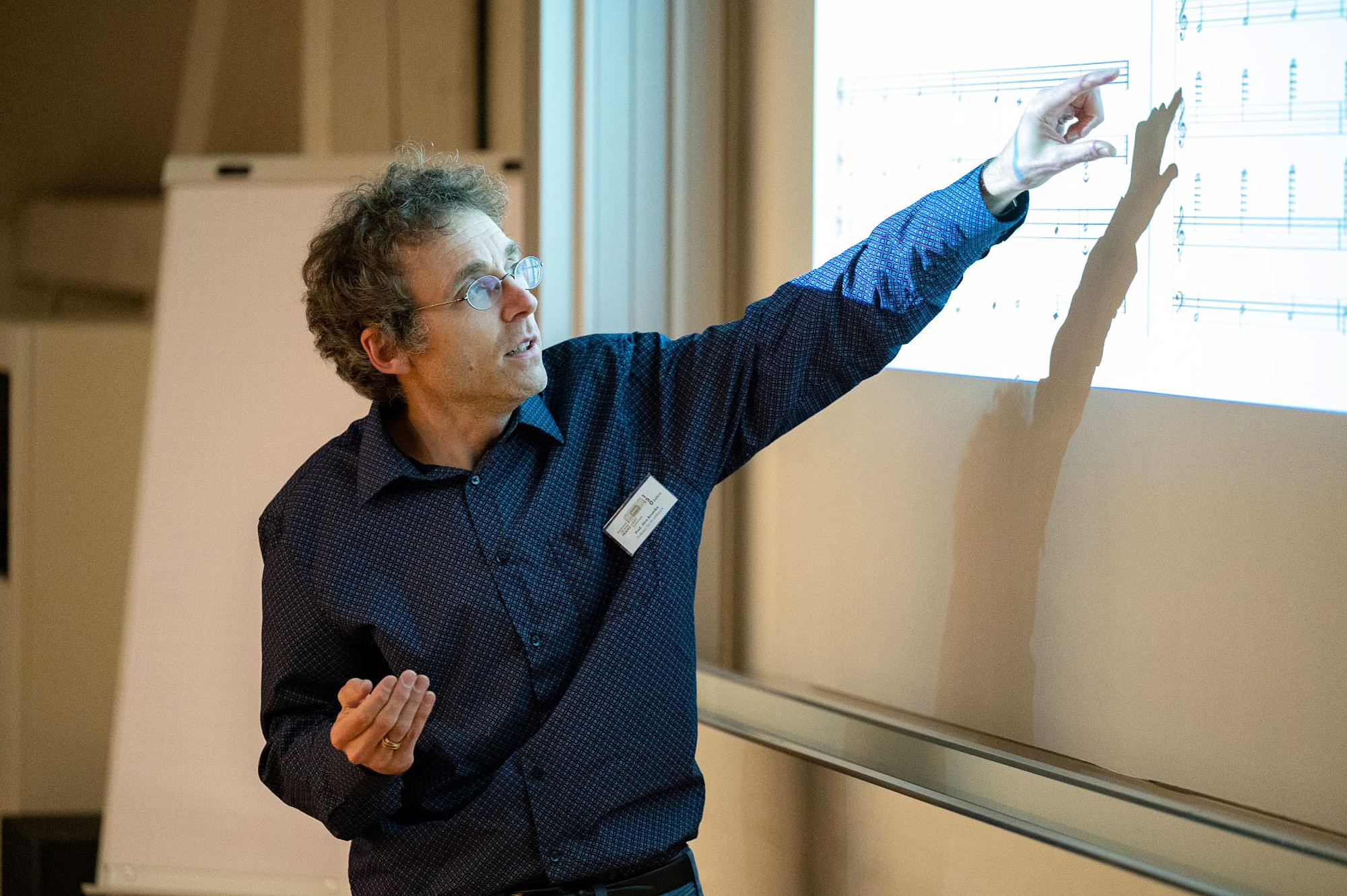
AI as creative intelligence
Research project of the Centre for Music Theory is funded in the Thuringian Fellowship Programme
Combining artificial intelligence with human intuition is the goal of a new research project at the Centre for Music Theory at the University of Music FRANZ LISZT Weimar. The project, which starts on 1 October, is led by music theory professor Jörn Arnecke and supported by the Stifterverband and the Thuringian Ministry of Science as part of the "Fellowships for Innovations in Digital University Teaching" programme.
"Music Automaton - With AI in the Musical Question-Answer Game" is the title of the project. Musicians are to be encouraged to create ideas in musical dialogue - in a way comparable to the ChatGPT format, but specially developed for musical material. The music vending machine playfully takes up two core areas of teaching and makes them creatively usable: inventing musical approaches and developing existing ideas.
The main goal of the project is to explore new methods for music data processing with neural networks and to create a powerful and educational app. It will be implemented in a web browser and allow users to interactively enter notes and compose "live" - almost like a game where human and machine can start, continue and finish each other's musical sentences.
"Music theory involves writing in historical styles in order to better understand and analyse music from this experience," explains Prof. Jörn Arnecke, head of the Centre for Music Theory at the Weimar University of Music. "With the help of AI, we want to achieve improvisational results more quickly, create playful incentives and grasp the construction of the pieces more precisely."
Also involved in the project is composer and programmer Alex James Vaughan, an internationally networked AI expert. "How you deal with music data as a musician is different from how computer scientists deal with it," he adds. "Our understanding of music leads to very different approaches. I'm convinced that we'll find something that others haven't discovered yet, and that's what makes it so exciting."
At the same time, this project will deepen the university's cooperation with the Fraunhofer Institute for Digital Media Technology Ilmenau, because another participant in the project, Andrew McLeod, comes from there.
The "Fellowships for Innovation in Digital University Teaching" programme is part of Thuringia's strategy for digitisation in higher education, which was renewed in 2021 and developed by the Ministry of Science together with the universities. The Free State provides more than five million euros annually for its implementation. The digital strategy for higher education institutions comprises a total of five fields of action: Digital University Teaching, Digitalised Research Processes, Open Access, Knowledge Transfer and Digital Infrastructure.
More information: www.stifterverband.org/digital-lehrfellows-thueringen
